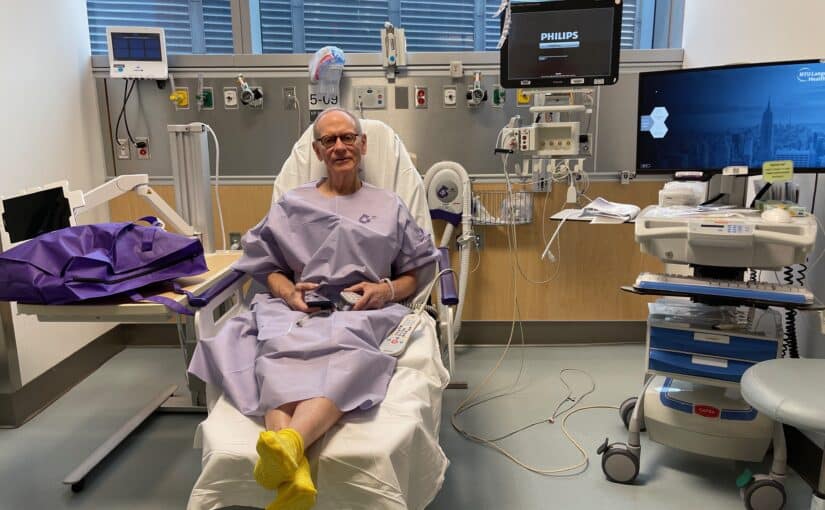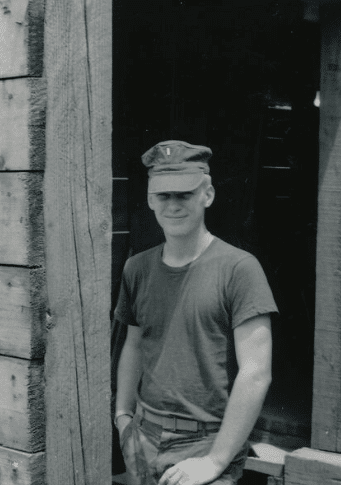by Lynda Cohen Cassanos
At 6:15 p.m., almost every other Sunday evening, I board a bus in midtown Manhattan that takes me to a suburban shopping center in Baltimore by 9:30 that night.
The bus, run by a private tour company, brings energetic day-trippers to the city every morning to shop, visit museums, go to the theatre, and see the sights. They leave Baltimore at 6:15 a.m. and the returning travelers are beat, ready to sleep the entire ride home.
I travel one way – the return trip. I’ve lived in New York City for thirty-two years, but my 96-year-old mother, who suffers from advanced dementia, still lives in our family home on the northwest edge of Baltimore city.
This has been my routine for over six years. As an only child, I am the one responsible for my mother’s well being and care. The opportunity to move her to a facility in New York never materialized.
After my 93-year-old father’s death in 2009 from congestive heart failure, which followed a rough nine-month recovery from aortic valve surgery, back and forth trips to the ER, and extended stays in rehab and nursing homes, I had had it with institutional care.
I know that worthwhile facilities exist and that they are often the best choice for the patient and caregiver, but at the time the extreme stress of my father’s last months in what is considered a top nursing home negated this option for me. And the fact that my frail mother was receiving attentive and loving care from two round-the-clock nurses in her own house clinched the decision to stay put.
The bus ride south along the turnpike at night is a welcome pause between the jarring transition of leaving my family and routine in New York to enter the upside-down world of my formerly articulate, creative, and independent mother.
A dear cousin picks me up at the bus stop and usually comes in for a visit. After he leaves, I start my routine: organizing the piles of bills and mail on the office desk, checking the grocery list the day nurse left on the kitchen table, and looking around to see if I have to make any urgent repairs to the sixty-year-old house.
Meanwhile, my mother sleeps, or doesn’t sleep – just mumbles and fidgets, with her attendant nearby, in her makeshift bedroom in the large den on the first floor.
It is well-known that Alzheimer’s caregiving and caregiver’s burn-out is a widespread problem and can be stressful for all involved. People cope in different ways.
Just among the people I know I’ve seen many scenarios.
One friend renovated the first floor of her house to accommodate the live-in needs of both parents who were suffering from the disease and their rotating cast of ten caregivers.
Another traveled from New York to Wisconsin every four weeks to visit her mother in a nursing home.
One friend moved her mother to a comfortable small group home with six or seven residents and a dedicated staff of caregivers. The house has a warm, communal atmosphere and the staff provides personal, one-on-one care. Residents have their own cheerful bedrooms and homemade meals are prepared in the kitchen.
I think a nurturing group home is perhaps the ideal situation, but this type of care is not widely available and most people must choose from a more limited number of options.
My decision to keep my mother at home was based on emotional and circumstantial issues, and the desire to provide consistent, quality care.
No matter what the choice is, I have discovered that there is one important job: that of showing up and making sure the healthcare providers know you care about your loved one – whether that loved one is in their own home, a residential house, or a facility.
Showing up is not always easy. It’s difficult to be pulled away from your life and routine for several days a week, or even for an afternoon, no matter how much you love the person for whom you are responsible.
In some ways, it can become harder as the disease progresses. In the beginning and middle stages of my mother’s dementia, she was usually her gracious, talkative self. In her Southern, well-mannered way, she would ask the caregivers if they were hungry to indicate that, in fact, she was hungry. Confused but colorful compliments for their perfectly prepared grits, eggs, and crab cakes charmed her day and night nurses.
Every morning she would describe in detail the exquisite party she’d been to the night before. Although her conversations often sounded like a mélange of Tennessee Williams and Ionesco monologues, there was a sparkle and connection that has disappeared. A good visit now may consist of one slight smile of recognition during my three-day stay.
This stage has lasted for more than two years, with slight peaks but more declines. In the morning, after giving my mother breakfast and during her nap that often lasts all day, I grocery shop and pay bills. In the afternoon I try to spend a few hours cleaning out a house filled with sixty years of stuff, but often just sit and read the boxes of saved letters and postcards that date back to the 1930s.
The responsibilities of house, grounds and car maintenance hadn’t registered when I signed on to in-home care. I’ve lived in apartments in cities with good public transportation since my college days and home repairs still remain a challenge.
But beyond the petty annoyance of routine chores, it is the trauma and anguish of seeing a loved one in this ongoing degenerative state that can be so unbearable. It is truly the long goodbye. However, my mother’s disease is a fact of life; it is the reality right now.
For me, it helps to try to be grateful for the positive aspects that exist alongside the overwhelming sadness of her condition. I try to focus on the fact that my mother is comfortable and seemingly content.
She eats well, enjoys her meals and does not have any painful medical conditions. A doctor and podiatrist make house calls every three months. And, most importantly, my mother has received exceptional attention from two devoted caregivers for over six years.

There is a haiku that goes: “The robbers took everything/but the moon in the window.” In spite of the devastating loss, there’s still something there, at least for now – a smile, a nod, the moon in the window.



